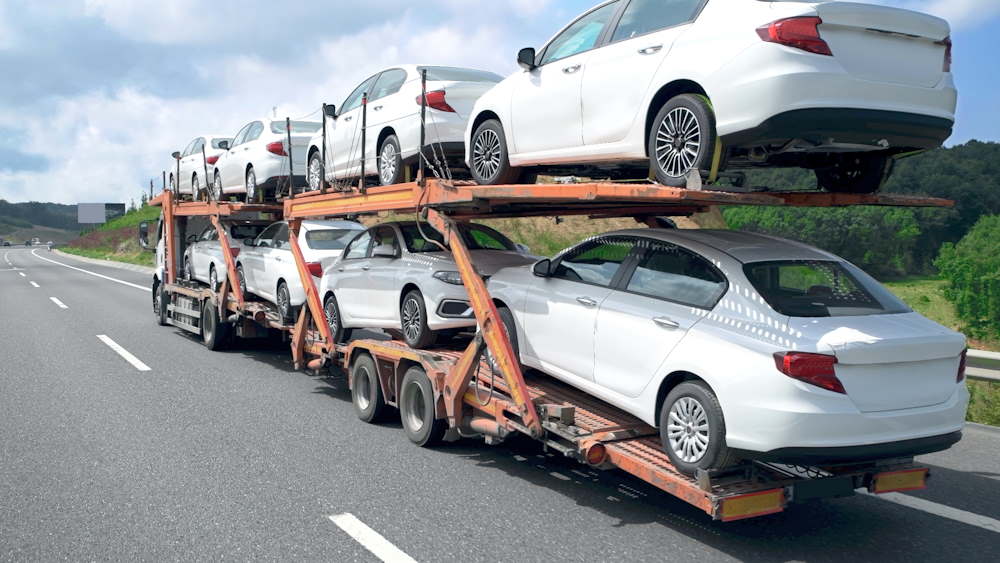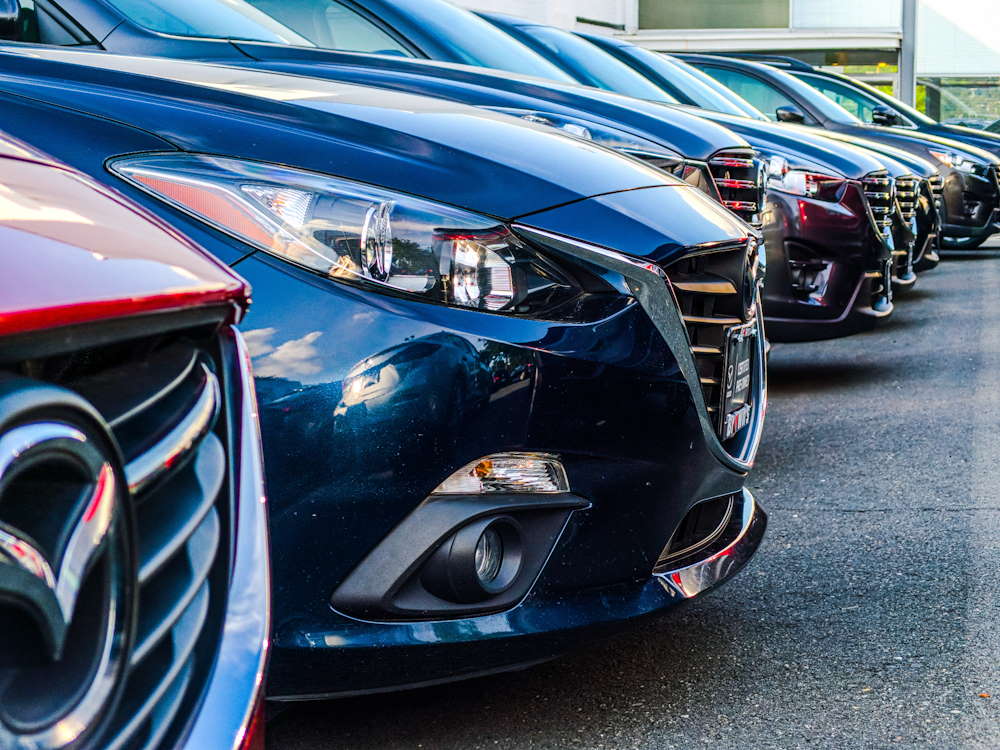You’ve hemmed and hawed and haggled with the dealer–but you finally landed on a sales price for your new car. And while you may feel like the deal is done and you are all ready to go, it’s imperative that you look over all of the fees that will be added onto the price tag. There are a lot of fees that the dealer may add on, and one of these common fees is a destination charge. But what exactly is a destination charge, and can you negotiate it?

A destination charge (also called a freight fee or freight delivery charge) is an added dealer fee that is meant to cover the cost of shipping your car from the manufacturer to the dealership. The fee is set by the manufacturer and is a flat fee that you will have to pay regardless of how far the dealership is from the manufacturer.
The destination charge is always listed as a separate line item on the sales contract. Manufacturers may have different names, but the cost is always meant to cover the shipping and handling of your car, and the cost is always passed on to the buyer.
Destination charges can vary greatly from manufacturer to manufacturer. In fact, they can even vary from model to model. This is because larger models such as SUVs and pickup trucks are heavier and therefore cost more to transport.
Destination charges can vary from $900 up to $2000 depending on the car you buy. If your car is a high end luxury vehicle you can expect to pay several thousands in destination charges. It’s important to note that destination charges only apply to transporting cars in the US. Foreign manufacturers shoulder the cost of getting their cars to the US.
Because these charges are set by the manufacturer, they are considered non-negotiable. Even if you live near the manufacturing plant and you know that the cost of delivering the vehicle pales in comparison to the destination charge, it doesn’t matter. These prices are set at a high level and are calculated by considering all of the vehicle delivery costs across the country, although the exact method that manufacturers use has never been revealed.

Destination charges for certain makes and models are getting more and more expensive, disproportionately so compared to the price of cars. It is interesting to note that some manufacturers have only increased their charges to keep in line with inflation.
A Consumer Reports study in 2021 found that BMW, Infiniti, Lexus, Lincoln, Mercedes-Benz, and Volvo each increased their destination charges by less than 20%, while Stellantis (the company behind Chrysler, Dodge, Fiat, Jeep, and Ram) increased their destination charges by more than 90% on Chrysler, Dodge, and Jeep brand vehicles.
So why the discrepancy between manufacturers? Car manufacturers are keeping their lips sealed. There has been a lack of transparency about how these fees are calculated, which makes many people skeptical that the charges are fair. Instead many feel that the added fees only serve to increase the overall sticker price and increase the profits for the manufacturers.
While it’s hard to say with certainty whether or not the fees are fair, the fact remains that they are a non negotiable and inevitable part of buying a car.

The only thing you can do when faced with these fees is to calculate it into your car budget. When you initially look to buy a car, it is easy to look at just the sticker price of the car you want and ignore the rest. But the truth is that buying a car will cost you much more than the sticker price states.
In addition to your car’s sticker price you may (and probably will) be required to pay the following fees:
Destination charge
Dealer preparation fee
Sales tax
Title and registration
Delivery fee (this is different form the destination charge: this is if you need the car delivered to your house)
Documentation fee
These fees and taxes will easily add thousands of dollars onto your total sale price. But these fees will vary based on the price of your car and the manufacturer.
Your first step when looking to buy a new car should be to look at your budget. Looking at your total income and your total expenses will help you determine how much you can comfortably afford to pay every month. You will also have to determine how much of a down payment you can make. A down payment will help you avoid an upside down loan (where your car is worth less than the amount you owe).
The total amount you owe will be the sale price of the car plus taxes and fees. When you look at new cars consider these added costs. You can do some research to determine how much the destination charge is on the car you are interested in. This will help prepare you for the total cost of your new car.
While you cannot negotiate the destination charge, there are other fees that you may be able to negotiate. The following fees may have some wiggle room that can help you cut costs.
Advertising fee. This fee is exactly what it sounds like–it helps cover the dealership’s local and regional advertising. If this is listed as a line item, you may be able to haggle it down.
Dealer prep fee. If you are buying a new car, one may wonder what the dealer actually has to prep. Because of that, you can make a reasonable argument to the dealer that the fee should either be reduced or waived completely.
VIN etching. This is an add on that some dealers will throw on as a “theft prevention tool”. But in reality you can buy a DIY kit online for a fraction of the price.
GAP Insurance/ Credit Insurance/ Extended Warranty. These are all optional coverages that you can add on, but will increase your price. While some may be worthwhile, you can shop around and shouldn’t feel pressured by the dealer.
The bottom line is that when you are buying a car you need to consider all of the costs–the sticker price plus all of the taxes and fees.
Having a firm and realistic number of how much you can spend in total on your car is essential when shopping for a new car. Negotiate where you can and search for a car loan that works for you.
If you aren’t happy with your current car loan, contact Auto Approve today to see how we can help!